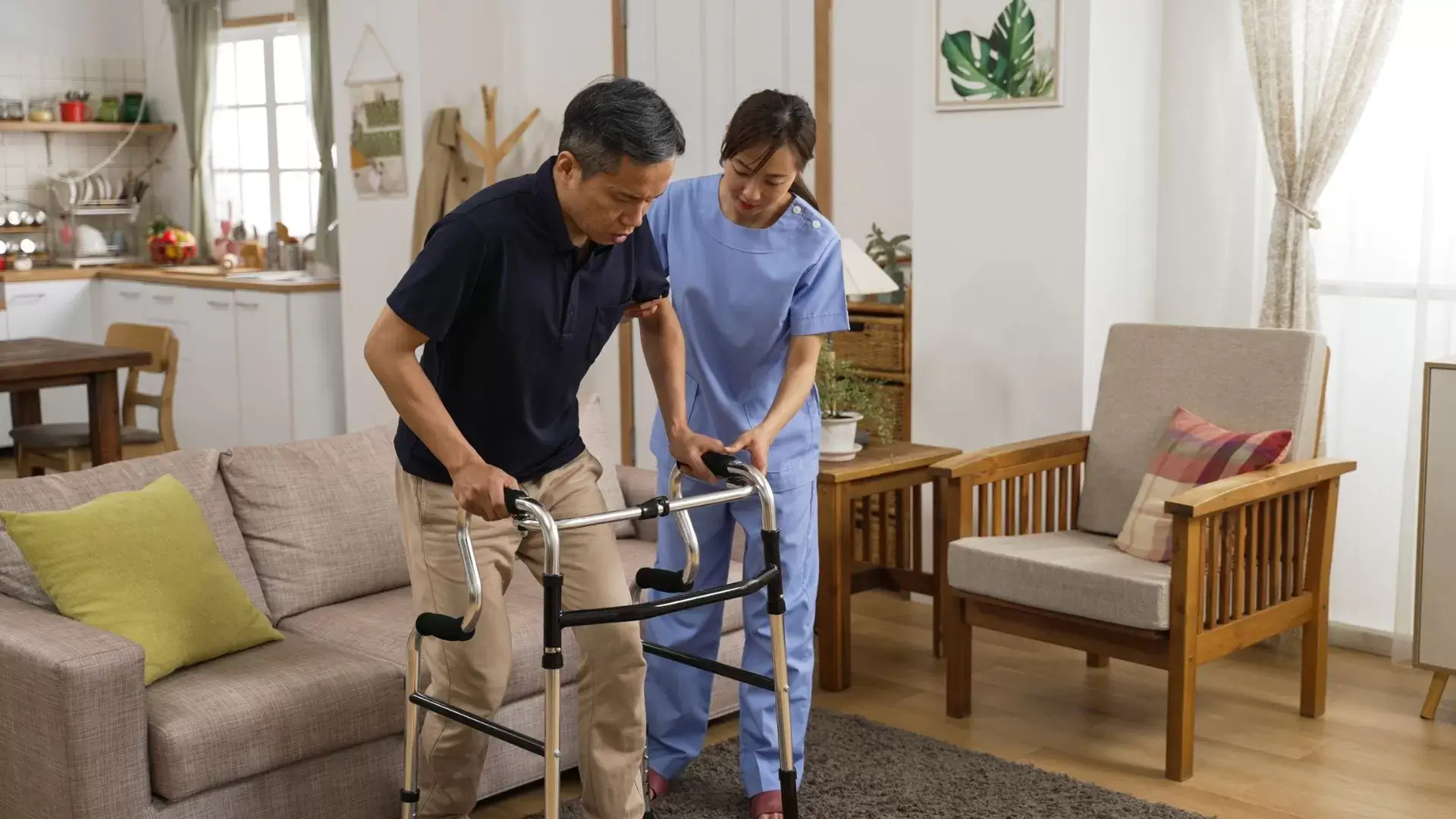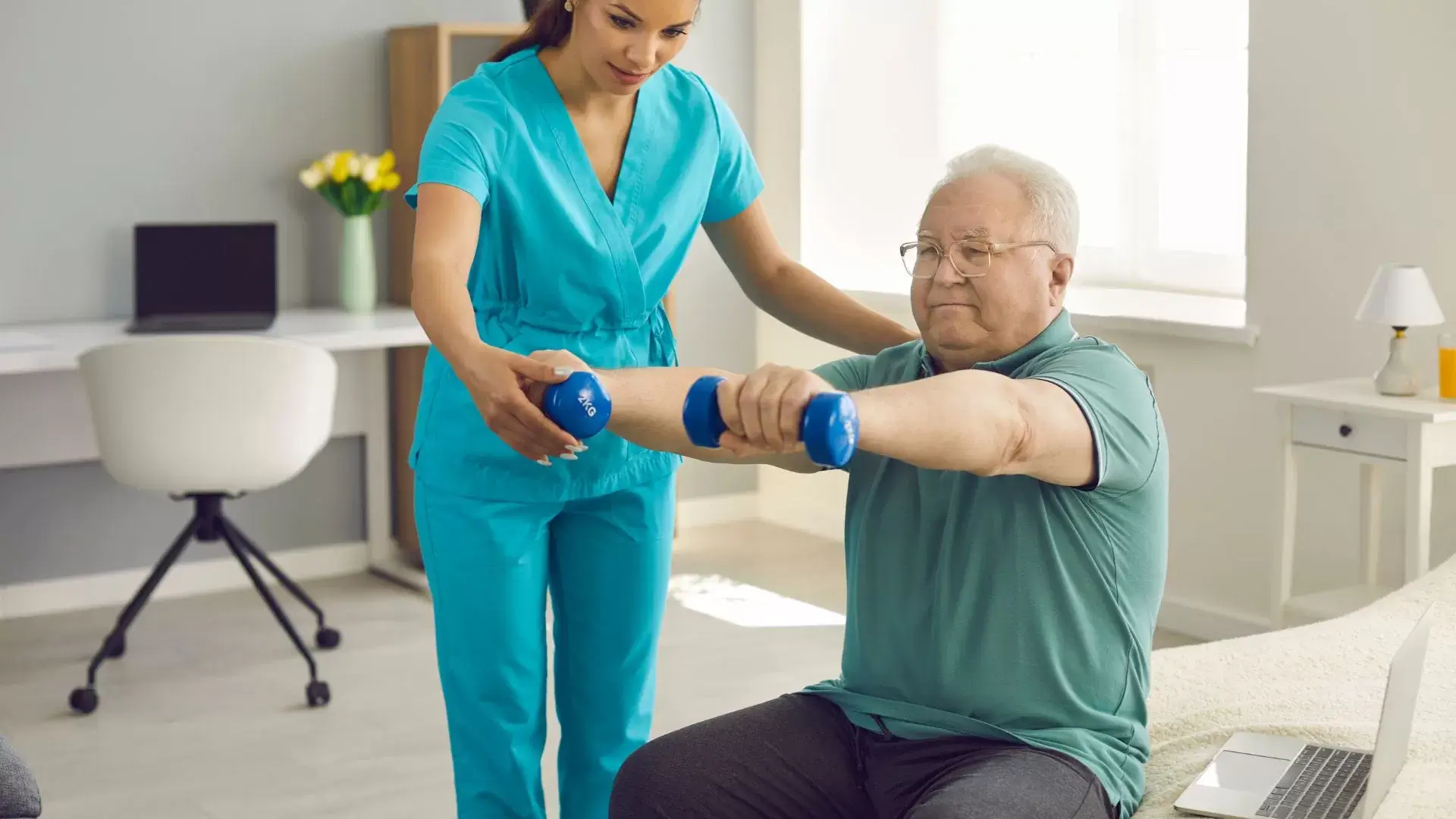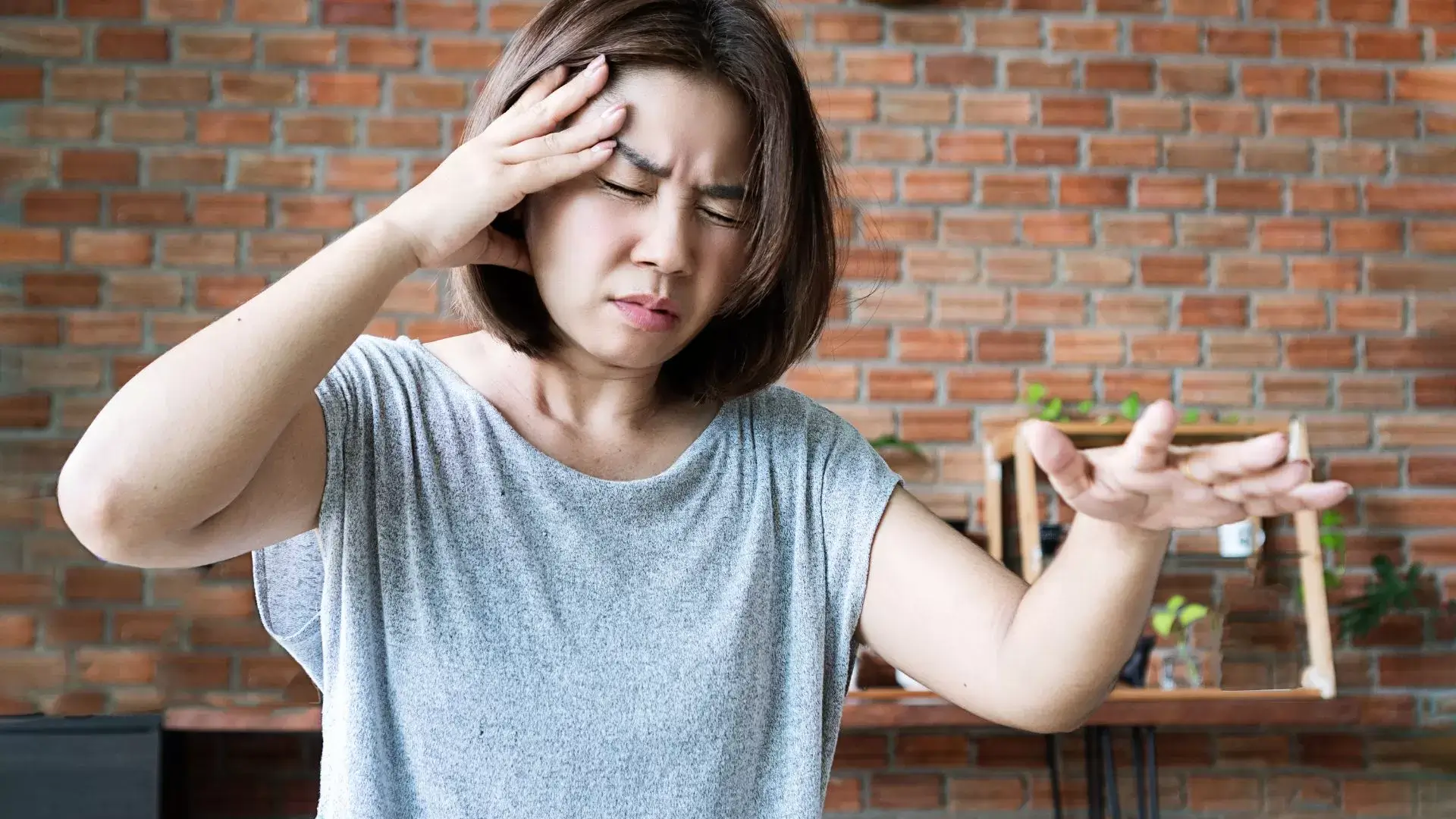We’re committed to offering the Best Physiotherapy and Chiropractic Services in Mississauga, including specialized Physiotherapy for Stroke, to help patients regain their mobility and quality of life. Our tailored programs focus on enhancing mobility, strength, and independence. We recognize the unique needs of each patient, offering compassionate support and evidence-based techniques designed for effective rehabilitation. Our approach promotes neuroplasticity, helping the brain form new connections essential for recovery. With ongoing assessments, we adapt your treatment plan to guarantee optimal progress. Our commitment extends beyond physical therapy, fostering a supportive environment for both patients and families. If you’re interested, there’s much more to explore about our extensive services and community resources available.

At Mississauga Physio Chiro Clinic, we offer extensive physiotherapy and chiropractic services designed to support stroke recovery and enhance overall well-being. Our dedicated team specializes in stroke rehabilitation, focusing on individualized treatment plans tailored to each stroke survivor’s unique needs. By integrating physiotherapy and chiropractic services, we aim to improve motor skills recovery and provide thorough neurological care.
We understand that post-stroke care can be challenging, especially when dealing with cognitive impairment or physical limitations. That’s why we emphasize rehabilitation exercises that promote strength, flexibility, and coordination. Our therapists work closely with patients to help them regain independence and improve their quality of life.
Additionally, we encourage participation in stroke support groups, fostering a sense of community and shared experiences among survivors and their families. These groups provide emotional support and valuable resources as patients navigate their recovery journey.
Understanding the different types and causes of stroke is fundamental for recognizing symptoms and seeking timely intervention, as it can greatly impact recovery outcomes. There are primarily two types of strokes: ischemic and hemorrhagic. An ischemic stroke occurs when blood flow to the brain is blocked, often due to a blood clot, while a hemorrhagic stroke results from a blood vessel rupturing, leading to bleeding in the brain.
Additionally, we should be aware of transient ischemic attacks (TIAs), which are temporary blockages that can serve as warning signs for future strokes. Identifying stroke symptoms early can be essential in these situations.
Several stroke risk factors can increase our likelihood of experiencing a stroke. High blood pressure, high cholesterol, and diabetes are significant contributors that we must manage effectively. By maintaining regular check-ups and making lifestyle changes, we can lower these risks and improve our overall health.
Raising stroke awareness is critical, as understanding these factors empowers us to take preventive measures. By educating ourselves and others, we can foster a community where timely intervention and recovery are prioritized.
Recognizing the signs of a stroke is essential, as timely detection can considerably influence recovery prospects and minimize long-term effects. We need to be aware of the common stroke symptoms, which include facial drooping, arm weakness, and slurred speech. These signs can indicate a transient ischemic attack or a full-blown brain attack, both requiring immediate medical attention.
Using the FAST acronym can help us remember the critical warning signs: Face – check for drooping; Arms – assess if one arm drifts downwards; Speech – listen for slurred or strange speech; Time – if any symptoms are present, it’s time to call emergency services. Early detection is crucial for effective stroke first aid, potentially saving lives and improving outcomes.
In addition to these symptoms, we shouldn’t overlook vision loss or sudden severe headaches, as they can accompany a stroke. By acting quickly and recognizing these symptoms, we enhance the chances of effective intervention and recovery. Our collective awareness and prompt action can make a significant difference in the lives of those affected by strokes, reinforcing the importance of education in our communities.
Physiotherapy plays an essential role in stroke recovery, helping patients regain mobility, strength, and independence through tailored rehabilitation programs. In the aftermath of stroke, many face challenges like hemiplegia and stroke-related disability, which can greatly impact their daily lives. Our approach combines physical therapy and occupational therapy to address these challenges holistically.
At rehabilitation centers, we focus on enhancing neuroplasticity, the brain’s ability to adapt and reorganize itself after brain damage. By engaging patients in targeted exercises, we promote functional recovery and mitigate potential stroke complications. Our therapists work closely with each individual to create personalized plans that cater to their specific needs and goals.
Through consistent and focused stroke treatment, we empower patients to reclaim their independence and improve their quality of life. We recognize that recovery is a journey, and our compassionate support guarantees that patients feel motivated and encouraged throughout the process. Together, we aim to make every step of stroke recovery meaningful and impactful, helping individuals rebuild their strength and confidence as they navigate their new normal.

How can we effectively tailor rehabilitation for patients recovering from ischemic and hemorrhagic strokes to meet their unique needs and challenges? Each stroke presents distinct obstacles, whether it’s due to a blood clot obstructing blood flow in ischemic strokes or bleeding in the brain from hemorrhagic strokes. Understanding these differences is essential in creating individualized rehabilitation plans.
Neuroimaging, such as brain scans, can provide insights into the extent of brain damage and help us identify the specific areas affected. This information allows us to develop targeted interventions, focusing on restoring motor function, communication, and cognitive abilities. For instance, stroke patients may experience paralysis, making mobility training critical.
Additionally, speech therapy plays an important role for those facing communication difficulties post-stroke. By addressing these challenges early, we can improve recovery outcomes and promote independence.
Furthermore, we emphasize stroke prevention strategies in our rehabilitation programs. Educating patients on risk factors and lifestyle modifications can greatly reduce the chances of future strokes. By approaching each patient holistically, we guarantee our rehabilitation efforts not only address their immediate needs but also support long-term health and well-being.
In addressing paralysis and hemiplegia after a stroke, we focus on a range of evidence-based physiotherapy solutions designed to enhance mobility and improve overall function. Following a stroke diagnosis, individuals often experience complications such as brain swelling or ischemia, which can exacerbate mobility challenges. Our approach includes tailored exercises that target affected muscle groups, facilitating recovery and strength-building.
We also integrate techniques that promote neuroplasticity, ultimately aiding in the regaining of movement and coordination. For those who may have experienced a transient ischemic attack, our physiotherapy solutions emphasize stroke prevention tips, helping to mitigate future risks.
Additionally, we recognize that some individuals may face concurrent issues like aphasia or dysarthria, which can impact their overall rehabilitation journey. While our primary focus is on physical recovery, we advocate for a holistic approach that considers all aspects of a person’s health. We may also coordinate with healthcare providers regarding the management of anti-clotting medication to guarantee the safety and effectiveness of our interventions. Together, we endeavor to empower every individual on their path to recovery, fostering independence and quality of life post-stroke.
Many stroke survivors face challenges with cognitive and communication skills, necessitating targeted interventions to support their recovery and improve daily interactions. Whether the stroke resulted from a cerebral infarction, brain hemorrhage, or even a transient stroke or mini-stroke, the effects can vary considerably. We acknowledge that these challenges can be particularly prominent in older adults, as stroke and aging often intersect.
In our approach, we emphasize the importance of tailored exercises that enhance cognitive skills and foster effective communication. This may include memory games, problem-solving tasks, and conversation practice, all designed to rebuild confidence and proficiency. Additionally, we recognize the role of lifestyle choices in recovery. Blood pressure management and addressing hypertension are essential, as these factors directly influence stroke outcomes and overall brain health.
Following cognitive and communication challenges, stroke survivors may also experience vision loss and balance problems, which can considerably impact their independence and quality of life. In our physiotherapy practice, we recognize that addressing these issues is essential for effective rehabilitation. Vision loss can complicate mobility and increase the risk of falls, while balance problems can hinder daily activities.
Through targeted therapy techniques, we focus on enhancing visual processing and balance. We incorporate specific exercises designed to improve coordination and stability, allowing stroke survivors to regain confidence in their movements. Our approach is individualized, ensuring that each patient receives the support needed to navigate their unique challenges.
Additionally, we emphasize the importance of patient support throughout this process. By fostering an environment of encouragement and understanding, we help patients feel empowered in their rehabilitation journey. Together, we can create a thorough plan that addresses vision loss and balance problems, ultimately improving mobility and promoting a better quality of life. With commitment and the right physiotherapy strategies, we can help stroke survivors reclaim their independence and overcome the obstacles posed by movement disorders.

Rebuilding motor skills after a stroke hinges on harnessing the power of neuroplasticity, allowing the brain to adapt and form new connections vital for recovery. By incorporating neuroplasticity-focused therapies into our stroke rehabilitation programs, we can effectively target the areas of the brain affected by the stroke. This approach is essential, especially considering stroke statistics that indicate a significant number of survivors face motor skill challenges.
Through tailored physiotherapy sessions, we work on regaining movement and coordination. These therapies often include repetitive practice, task-specific training, and the use of assistive devices to help patients retrain their motor skills. This method has proven effective in promoting stroke recovery, especially for those with conditions like cerebral edema or atrial fibrillation, which can complicate healing.
We understand that a family history of stroke can heighten anxiety about recovery. As a result, our compassionate team emphasizes support and encouragement throughout the rehabilitation journey. Engaging with the latest stroke research guarantees that we provide the most effective, evidence-based therapies to optimize recovery and empower our patients in reclaiming their independence. Together, we can navigate this challenging path toward regaining motor skills and improving quality of life.
To help prevent future strokes, we must embrace lifestyle adjustments that promote heart health and overall well-being. Key factors like diet and regular exercise play essential roles in stroke prevention. By adopting a balanced diet rich in fruits, vegetables, whole grains, and lean proteins, we can combat obesity and reduce the risk associated with conditions like atrial fibrillation (afib) and carotid artery disease.
We should also prioritize quitting smoking, as it’s a major risk factor for strokes. Smoking not only damages blood vessels but also increases the likelihood of clot formation, which can lead to a stroke. For those of us with a family history of stroke and genetics that may predispose us to vascular issues, these adjustments become even more critical.
Incorporating physiotherapy into our routine can help improve overall fitness and manage existing health conditions effectively. Regular check-ups with healthcare professionals will also guarantee that any necessary interventions, such as clot-busting medication if needed, are addressed promptly. By making these lifestyle adjustments together, we can considerably lower our risk of future strokes and enhance our quality of life.
Effective stroke rehabilitation exercises can greatly enhance recovery, empowering us to regain strength, coordination, and independence both at home and in clinical settings. Following stroke surgery, such as mechanical thrombectomy, we often face challenges including motor deficits resulting from conditions like intracerebral hemorrhage and subarachnoid hemorrhage.
Incorporating effective stroke rehabilitation exercises into our daily routines is crucial. These exercises can include strength training, balance activities, and flexibility workouts. At home, we can engage in simple movements like seated leg raises or arm lifts, which are essential home exercises for stroke recovery. In clinics, physiotherapy for stroke focuses on more structured regimens tailored to our specific needs, often guided by professionals who understand our unique recovery pathways.
It’s also important to reflect on stroke and diet, as nutrition plays a significant role in overall recovery. Regular assessments through MRI or CT scans can help us monitor progress, ensuring that our rehabilitation strategies are effective. By committing to these exercises, we can foster a proactive approach to our recovery journey, ultimately enhancing our quality of life. Together, let’s embrace the path towards regaining our independence.
Combining speech and occupational therapy offers us a holistic approach to recovery, addressing both communication challenges and daily living skills essential for regaining independence after a stroke. After experiencing a transient ischemic attack (TIA) or stroke, many of us face difficulties that can greatly impact our quality of life.
At our facility located at 1834 Lakeshore Rd W unit 6C, Mississauga, ON L5J 1J7, we recognize that effective communication is just as crucial as the ability to perform everyday tasks. By integrating these therapies, we can tailor a program that focuses on individual needs, promoting functional recovery.
Speech therapy helps us regain our ability to express ourselves and understand others, while occupational therapy equips us with the skills to navigate daily activities, from dressing to cooking. This thorough care approach not only addresses physical limitations but also boosts our emotional well-being, fostering a sense of accomplishment.
If you have any questions or need further information, don’t hesitate to contact us. Together, we can begin a journey towards recovery, ensuring that no aspect of our rehabilitation is overlooked.
As we continue to focus on all-encompassing care, managing chronic stroke disabilities through physiotherapy plays an essential role in helping us regain mobility and enhance our overall quality of life. Physiotherapy addresses specific challenges we face post-stroke, such as muscle weakness, balance issues, and coordination difficulties. By implementing tailored exercise programs, we can improve strength and flexibility, which are critical for our daily activities.
Our physiotherapists work closely with us to establish achievable goals, ensuring that each session is productive and motivating. Techniques such as manual therapy, neuromuscular re-education, and gait training can greatly contribute to our recovery journey. Additionally, they provide education on posture and body mechanics, helping us avoid further complications.
Moreover, the emotional support and encouragement we receive from our physiotherapy team foster a positive environment that empowers us to push through challenges. Engaging in regular physiotherapy not only aids in physical recovery but also promotes mental well-being, reducing feelings of frustration and isolation. Ultimately, by actively participating in our rehabilitation, we can regain independence and improve our quality of life post-stroke.
Neuroimaging plays an essential role in shaping personalized stroke recovery plans by providing detailed insights into brain activity and injury locations, allowing us to tailor our rehabilitation strategies effectively. By utilizing advanced imaging techniques like MRI and CT scans, we can identify which areas of the brain have been affected by the stroke. This information is vital, as it helps us understand the specific deficits each patient may face.
We can then develop targeted physiotherapy interventions that focus on enhancing the function of the affected areas. For instance, if neuroimaging reveals damage to the motor cortex, we can prioritize exercises that promote motor skill recovery. Additionally, understanding the brain’s plasticity enables us to incorporate strategies that encourage neuroplastic changes, fostering recovery over time.
Moreover, neuroimaging allows us to monitor progress and make necessary adjustments to the treatment plan. As we observe changes in brain activity in response to therapy, we can refine our approaches to better suit individual needs. This personalized method not only enhances rehabilitation outcomes but also instills hope and confidence in our patients, reminding them that recovery is a collaborative journey. Together, we can navigate this path toward healing and improved quality of life.
Building robust support networks is essential for stroke survivors and their families, as these connections provide emotional strength, practical assistance, and a sense of community during the recovery journey. By fostering relationships with friends, family, and fellow survivors, we create an environment where sharing experiences and challenges becomes a crucial part of healing.
We can encourage participation in local support groups, where stroke survivors and their families can connect with others who understand their unique struggles. These groups often facilitate discussions, share resources, and provide valuable information on coping strategies and rehabilitation options. Additionally, utilizing online platforms and social media can expand our reach, allowing us to connect with a wider network of individuals who’ve faced similar challenges.
Moreover, we should consider involving healthcare professionals who can guide us and our loved ones, offering insights into recovery and rehabilitation processes. By building these support networks, we not only help ourselves but also contribute to a stronger community focused on resilience and hope. Together, we can create a nurturing environment that empowers stroke survivors and their families to navigate their recovery journey with confidence and support.
Seeking expert physiotherapy care in Mississauga can greatly enhance our stroke rehabilitation journey, providing tailored support to improve mobility and overall well-being. When we engage with knowledgeable physiotherapists, we benefit from individualized treatment plans designed to address our specific needs, which can greatly boost our recovery processes.
In Mississauga, practitioners employ a variety of evidence-based techniques, including manual therapy, exercise regimens, and neuromuscular re-education, all aimed at restoring function and mobility. These specialized approaches enable us to regain strength, coordination, and balance, which are essential for daily activities.
Moreover, expert physiotherapy care includes ongoing assessments to track our progress and adapt the treatment plan as necessary. This dynamic process guarantees that we’re always moving forward in our recovery.
In addition, physiotherapists provide education and strategies for us and our families, helping to create a supportive home environment conducive to healing. Their compassionate approach not only addresses our physical needs but also uplifts our mental and emotional well-being. By prioritizing expert physiotherapy, we take meaningful steps toward reclaiming our independence and enhancing our quality of life after a stroke.
Mississauga, a vibrant and diverse city in Ontario, offers a rich blend of cultural experiences and community resources that can greatly support our rehabilitation journey after a stroke. With its welcoming atmosphere, we find an array of programs designed specifically for individuals recovering from stroke-related challenges.
The city boasts numerous healthcare facilities, many of which specialize in physiotherapy and rehabilitation services. These institutions provide advanced treatments to help us regain mobility and independence. Additionally, Mississauga’s network of support groups fosters a sense of community, allowing us to connect with others who share similar experiences and challenges.
Cultural events and recreational activities throughout the city encourage us to engage with our surroundings and promote mental well-being. From art exhibits to outdoor activities, we can find numerous opportunities to stay active and motivated during our recovery process.
Moreover, local parks and accessible spaces provide ideal environments for physical activity, which is essential for our rehabilitation. In Mississauga, we’re not just recovering; we’re part of a compassionate community that understands our journey and is committed to helping us thrive. Together, we can navigate the path to recovery with hope and determination.

When we’re looking for a stroke physiotherapist, we should prioritize their qualifications, experience, and approach. Ideally, they should have a degree in physiotherapy and specialized training in stroke rehabilitation. It’s also important they’re registered with a recognized professional body. We’ll benefit from someone with hands-on experience treating stroke patients, as well as a compassionate demeanor that fosters a supportive environment. Ultimately, we want someone who understands our unique needs and goals.
When it comes to stroke rehabilitation, we often find that the duration can vary greatly based on individual circumstances. Generally, it can take weeks to months for noticeable improvements, depending on factors like the severity of the stroke and the person’s overall health. We should remember that each journey is unique, and consistent effort combined with professional support can lead to meaningful progress. Patience and persistence are key to achieving the best outcomes.
When it comes to insurance coverage for physiotherapy during stroke recovery, we should check our specific policy details. Many insurance plans do cover physiotherapy, but the extent can vary widely. It’s important for us to reach out to our insurance provider directly to clarify the specifics of our coverage, including the number of sessions allowed and any necessary documentation. This way, we can guarantee we’re making the most of our benefits.
Absolutely, physiotherapy can greatly aid in emotional recovery after a stroke. It’s not just about physical rehabilitation; it helps us process the emotional challenges that arise. Through tailored exercises and supportive interactions, we can rebuild our confidence and sense of self. Additionally, engaging in group therapy or support sessions during physiotherapy fosters connection, allowing us to share experiences and feelings, which is essential for healing emotionally. We’re not alone in this journey.
Yes, there are support groups for stroke survivors that we can join. These groups provide a safe space for us to share our experiences, connect with others facing similar challenges, and gain valuable insights into recovery. We can find both in-person and online options, ensuring accessibility for everyone. Engaging with these communities not only aids in emotional healing but also helps us build a supportive network on our road to recovery.
Reach out to us today to book an appointment or learn more about our services. Our friendly team is here to answer your questions and help you take the first step toward improved health and wellness.
(647) 372-1209

At our “Mississauga Physio Chiro Clinic”, we are dedicated to providing personalized care that addresses the root cause of your discomfort. With a team of experienced physiotherapists and chiropractors, we focus on restoring your mobility, relieving pain, and enhancing your overall well-being.